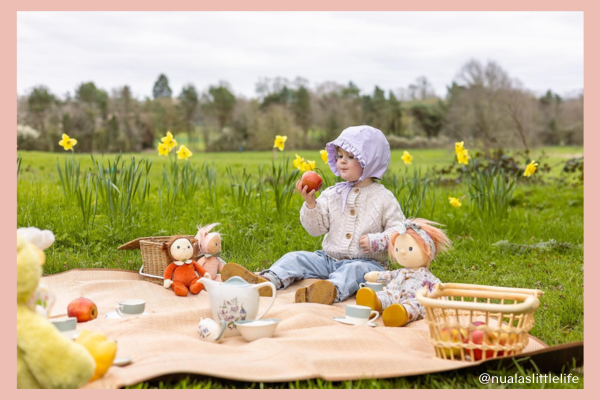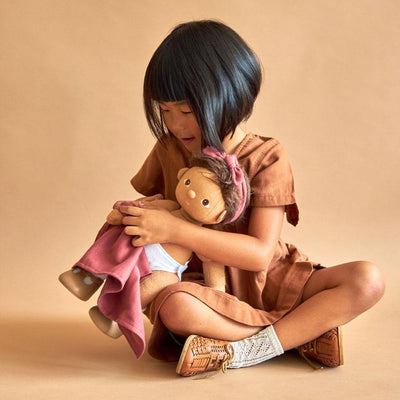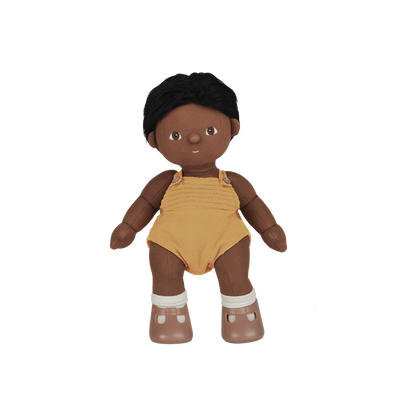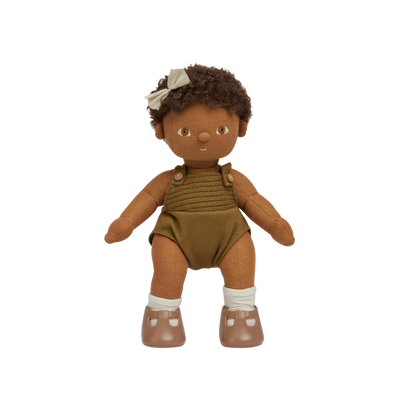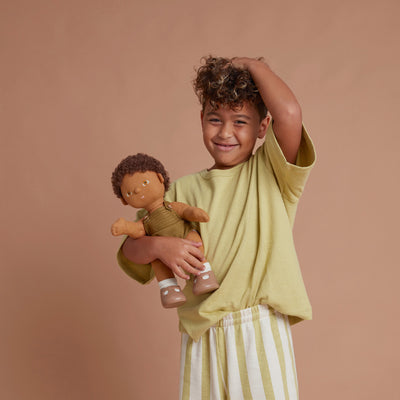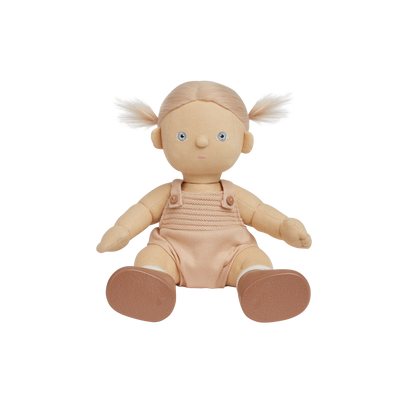Play is a child's way of engaging and making sense of the world. Role play may appear to be an amazingly simple activity, yet children learn practical life skills within it. Between the ages of two and three, kiddos begin to explore the world of imaginative play. Not only does this type of play teach children important skills like feeding, dressing, and caring for others, it also taps into developing social skills and empathy. Read on for more benefits and tips to encourage a special bond with your little one and their doll.
~
“When children create imaginary worlds and role play with dolls, they communicate at first out loud and then internalize the message about others’ thoughts, emotions and feelings. This can have positive long-lasting effects on children, such as driving higher rates of social and emotional processing and building social skills like empathy that can become internalized to build and form lifelong habits.” - Dr Sarah Gerson, a neuroscientist at Cardiff University.
-

Introduce Problem Solving
Assist your kiddo by introducing incidental learning opportunities. For example, during pretend mealtimes, you might ask your child questions like, "what's on the menu today?", or "what happens next?". Prompt critical thinking by inserting dilemmas that your child will have to solve e.g., "oh no! Dolly's food is too hot to eat". Your kiddo can work through these tricky scenarios with guidance.
-

Foster Creativity
Allow children to explore and act out different scenarios that they may not be able to experience in real life. For example, dining at a restaurant with mum & dad, or nurturing their own little doll baby - perfect for kiddos who are about to welcome a younger sibling.
-

Promote Physical Development
Fun activities such as dressing a Dinkum Doll in shoes and socks are great for developing hand-eye coordination. Provide a box of props filled with doll clothes and accessories for your child to explore their own sense of style. Teach personal hygiene habits like brushing hair and acting out bath time routines.
-

Teach Language Skills
Expand your child's vocabulary by encouraging them to describe the way they are playing with their dolls. Ask them to describe the scenario (e.g., "we are riding a pretend bus to the shops"), and encourage them to vocalize emotions ("we are excited to be on a bus!"), and the conversation between your child and their doll.
-

Develop Social Skills and Empathy
Playing with dolls encourages children to learn about and consider other perspectives during solo and group play. Model empathetic behavior during playtime and encourage children to talk about their thoughts and emotions to further develop these crucial skills.
 Welcome to Olli Ella!
Welcome to Olli Ella!






